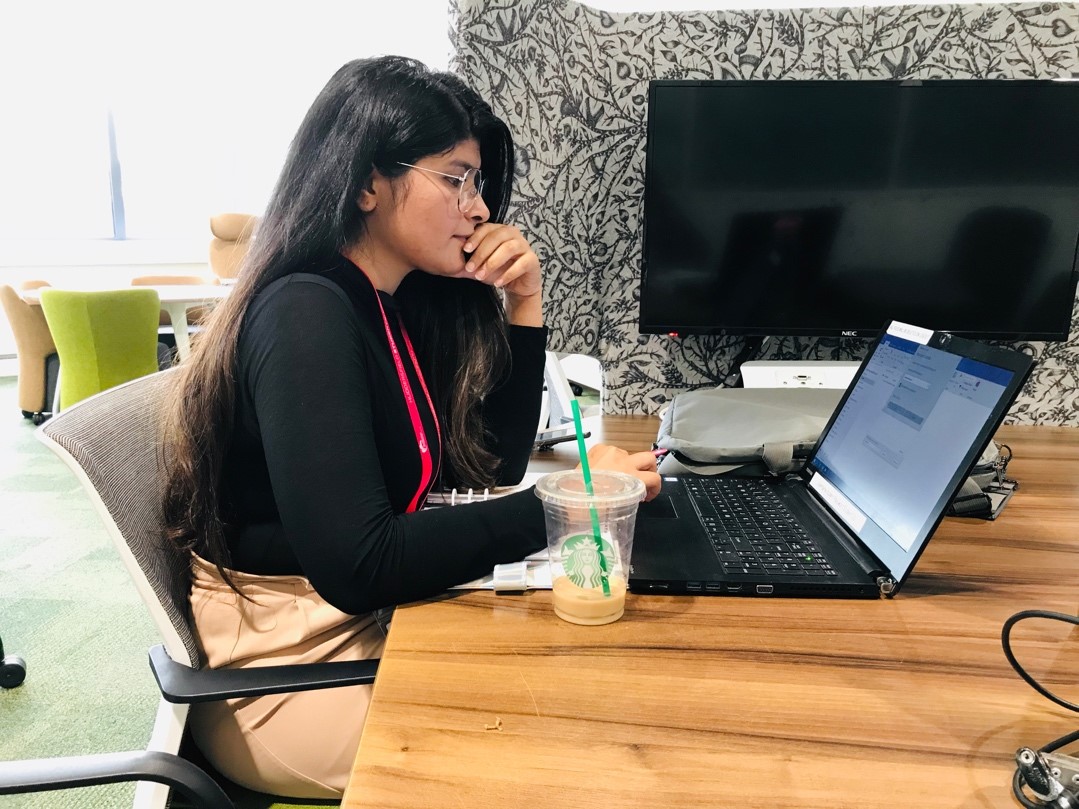
The difference between Indian universities and British universities

Rumana Khan
International Education student
Hello! I am a final year Education student and I'm originally from India. I am the former President of the Indian Student Society and I have delivered many other roles where I proudly represented my country and the University. I really like to travel and explore places, but I also adore my own space and enjoy my own company. I like shopping and I love coffee; this combination is delightful!
Are you an Indian student thinking of studying in the UK? Or maybe you're a current student looking for tips?
As an Indian student in my third year in the UK, I have noticed lots of differences between Indian Universities and British Universities.
In this blog, I cover everything you need to know, practical tips, managing academic life, employability tips, post-study work visa.
My academic background
I am originally from Pune, India. I am currently studying BA (Hons) Early Childhood and Education at the University of Huddersfield and I am in my final year.
In India I gained my HSC, which is equivalent to A-levels in the UK, I earned a Diploma in Education before preparing for my bachelor’s. This was just to get an insight into what being a teacher, or an educator would be like. Thus, I have the experience of studying at a University in India.
Differences between Indian universities and British universities
There are many differences between Indian universities and British universities including curriculum delivery and the methods in which students are assessed. Largely due to societal influence.
The learning experiences I had when I was preparing for my diploma in India did not satisfy me. And I wanted to gain an internationally recognised degree for my future career because I wanted to travel and teach. When I started my research to study abroad, British universities were very close to the subjects and curriculum fields I wanted to learn. And in some variables, it was distinct from Indian Universities.
Classrooms are bigger with fewer students in British universities
In India, most of the classroom structures would be where the benches and chairs are facing the blackboard and the teacher. The classroom would usually be smaller, and the number of students would be larger, making the atmosphere of the classroom a little clumsy.
Surprisingly, when I first entered my classroom at the University of Huddersfield, I was impressed by the way my classroom looked. There was all this craftwork done on the boards and walls, which sort of gave us a feeling of being a teacher already and there was lots of stationery for us to use. The tables and chairs were arranged in a circular structure for a group of 6-8 students. The classroom was quite big and there were only about 25-30 students in the classroom at a time. There was an automatic attendance monitoring system, which we must tap every time we attend any lectures.

More free time at British universities
The timings of the lectures make a huge difference between the Indian and British universities. This depends on different courses and institutions. But for me in India, it was Monday to Friday from 8 in the morning until 4 in the afternoon. Although, this included lunch breaks and short breaks, it was very lengthy and sometimes frustrating. Here, at the University of Huddersfield, I do not remember having a 5-day lecture, and none of my lectures were more than 4 hours a day, including breaks!
Teaching methods have more variety in British universities
Students in British universities are assessed in a manner that is entirely different when compared to Indian Universities.
India's higher education system has different ways of teaching. The Indian curriculum is strict, objective, and learning-based. Being an Indian student, it was initially difficult to adjust to several aspects of British Universities. Extensive reading and referencing are central to our assessments at the University of Huddersfield. Besides, attending all timetabled lectures is compulsory, including any personal tutorials. Group discussions and thought-provoking conversations were incredibly new for me in seminars/tutorials, but ultimately it strengthened my confidence and enhanced my communication skills.
In British universities, students are encouraged to read unlimited academic sources and use relevant references to complete any assignments. As an Indian student, I thought this would be smooth and easier than having to memorise a specific subject book full of chapters, questions and answers or notes given by teachers. To get good grades in India, rote learning was the only option for me. In this learning process, I often failed to understand the content or bring out any meaning of my subject. Because we were marked on how well we memorise the notes and answer the questions asked in the examinations.
However, the assignments here at the University of Huddersfield, are more practical and we are assessed on our knowledge and creativity. Most times, you will be expected to do independent study, where you will be given reading lists and activities to support your learning. So, it is not just listening and following what has been taught in the lectures but exploring your knowledge through literature and research. With every assessment and module, I passed, I genuinely felt that I learned something significant and that I can use the experience in working life.
So, in Britain, I spend less time in class but I learned a lot more by being given the freedom to study independently.
I have realised the value of reading regularly, it may sound quick, but it takes a lot of critical thinking and making notes.

Academic student support
It is also important to maintain healthy communication with our tutors and ask for assistance whenever needed. I have had great support in my first year from my tutor, Lindsey Watson. She was the first person I met at the University in the School of Education and always encouraged me to learn from challenges and assisted me whenever I required advice, I always go back to her for guidance.
As an Indian student at the University of Huddersfield, I can assure you that if you ask, you will always get proper guidance and you'll be directed appropriately. Never be afraid of asking for help.
Getting involved in extra-curricular activities, volunteering and job opportunities
Studying as an Indian student at a British University might sound like an effort, but honestly, it is not. There are numerous of fun opportunities to take part in as well as academia.
Experience distinct cultures
The first few weeks of your University life might be overwhelming, you will meet people from all around the globe. Every other person you talk to will have something interesting to share, never miss this chance! I am saying this because I am an unsocial person who will never start a conversation. However, when you are surrounded by an eventful environment, you will eventually lean to be social. I found socialising very promising in my first year. I found some great friends and mentors in Huddersfield very early on.
Keep up with your hobbies by joining international or academic societies
At the University of Huddersfield, I had diverse options to join a society of my interest to keep myself busy outside the study period. I joined the Indian Student Society where I met people from my home country. There were social gatherings and meetings organised for all to meet each other and hang out, we celebrated different festivals and national holidays together. We also took part in global events organised by the international office where we represented our culture and traditions.
I joined the Belly Dancing society as well. I always wanted to do this, but I was always tied up with other stuff and never got a chance. The society had flexible class hours, so with my schedule, it was easy for me to handle it.
I was also a member of the Early Childhood and Education society. It was an academic society and was more focused on educational aspects, such as trips to schools and nurseries.
Overall, it was worthwhile spending my time in supplementary activities as I learned something different from every experience.
Evolve your capabilities and skills through volunteering roles
Studying at a university miles away from your home country is quite an achievement. In British universities, it is also critical that we gain some work experience, as important as it is to get good academic results. A lot of international students struggle to find a part-time job to support their basic requirements alongside studies. Yes, it is difficult to get a part-time job because it is a competitive role. However, it is possible, if you work on your skills and create a great CV that stands out from others. If you are waiting for someone to come over to you and say here is the job for you, then please wake up because this is never going to happen.
You will have to seek opportunities through different channels and make helpful networks. When students are searching for work opportunities, JobShop is a very crucial forum. While you have some positive experiences on your CV, you can, however, obtain refusals from employers. This is mostly due to the way you present your material on your CV. The Careers and Employability service is incredibly supportive in structuring your CV according to the UK format.
I have worked at the University of Huddersfield in almost every department, including both volunteer and paid part-time roles. A few of my positions included the president of the Indian student society, academic rep assistant, student ambassador, social media representative, and international content creator. I even got in the International Prospectus.
In the UK, transferable skills and other skills learned through volunteering positions are considered to be of significant importance, so as an international student you must develop your CV with these essential skills as it shows your adaptability and willingness to work in a changing environment. And in every field of work around the world, this will be beneficial in a long-term career target.
Check out the video below for my top five tips for international students on how to improve your employability skills whilst studying at the University.
My top employability tips.
Explore this rich, vibrant and liberal country
Britain is intriguing and packed with adventures. You will find a place that meets your wandering desires, whether you are an introvert or an extrovert. On my weekends or holidays, I still take this opportunity to discover new areas and explore distinct locations.


Why Huddersfield?
The town of Huddersfield was one of the primary reasons why I chose to study at the University of Huddersfield. Coming from an industrial place in India, I have always missed being in a natural surrounding and greenery. When I researched Huddersfield, I thought this is all I wanted.
The town is compact, not crowded and peaceful, yet it has everything I would ever need. Certainly, the cost-of-living, its location and demographics make it easier for an international student to live independently.
I was recommended to choose Huddersfield by my uncle who used to live here for work purposes. Talking to current students and researching from sources such as the Universities international webpages and the Lonely Planet Explore Huddersfield - A guide for Students can also be useful to help you gain more accurate information you need.


2-year Post-Study Work Visa
In addition to my favourable reasons for studying at the University of Huddersfield, I am extremely excited to look forward to the newly implemented post-study work visa, which will allow Indian students to remain back in the UK for a long period after completing their studies. Not only the degree you acquire from studying in the UK will be globally recognised, but you will also have this brilliant opportunity to gain some work experience.
The new Graduate Route welcomes international students to stay in the UK for two years after their graduation to work or look for work. Students graduating in summer 2021 and those coming to study in the UK in 2021 will be eligible for the 2-year Post-Study Work Visa. More information is yet to be announced, and you should keep your eye on relevant sources such as UKCISA for more updates.
Summary - The difference between Indian universities and British universities
- British universities have more practical learning opportunities and you can extend your knowledge through research.
- You will gain a globally recognised degree.
- There are opportunities to learn within a diverse culture alongside students from all around the globe at British universities.
- British universities have more feasible classes hours.
- You can get career advice and CV enhancement through undertaking working opportunities in the UK.
- Explore and visit different places in the UK as it is easy to travel around.
- Indian students are eligible for a post-study work visa in the UK.
Finally, I would sum up my experiences of studying at the University of Huddersfield as the most incredible. It was one of the best decisions I have ever made.
More student life articles?
What is life like as a student? Hear it straight from our current students as they write about their student experience.
Meet our reps
These are the students who are sharing what life is really like at the University of Huddersfield.